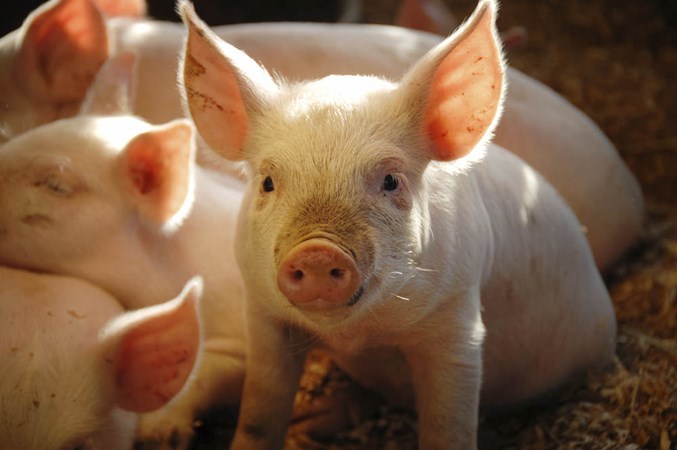2/9/2023
by Allie Molinaro
A new bill speeding through the Utah legislature would prohibit any town or county from banning several types of businesses often associated with animal suffering, including factory farms, feedlots, fur farms, horse racing, animal testing, and more. This dangerous bill must be stopped now before it's too late.
In mid-January, state Senator Scott Sandall introduced a bill into the Utah legislature that would safeguard several industries often linked to animal suffering from community intervention, including factory farms, feedlots, fur farms, horse racing, rodeos, animal testing, and others. Yesterday, less than three weeks after its introduction, the bill overwhelmingly passed the state Senate 25 to 1. This bill must be stopped before it unleashes untold harm to farmed animals, wildlife, communities, and even the legislators themselves.
For centuries, municipalities have used local laws as a tool to codify their values. Many have exercised this right by enacting laws to provide animals—farmed or otherwise—the protections they deserve. Salt Lake City, for instance, enacted a ban on horse and carriage ride operations. Multiple jurisdictions across the U.S., such as Charlotte, North Carolina and the state of Colorado, have banned wild animal circus acts.
In more recent decades, municipalities have used local laws to protect both themselves and animals from industrialized farming. As the ethical concerns surrounding factory farming have come into the public eye, state and local laws have been introduced to regulate unethical farming practices or ban factory farms altogether. In turn, the industry has sought to quell such laws with their own anti-regulatory legislation.
However, there is no moral or scientific basis for subjecting farmed animals to abuse but not other animals. While Utah's bill has made several concessions since it was introduced to allow bans on retail pet stores, circuses, and businesses that negatively impact dogs, cats, and primates, it deliberately subjects farmed and other animals to continued abuse. While these concessions are arguably a win for animal protection, they give the bill itself even less scientific standing. Pigs, chickens, cows, and other farmed animals have all been deemed sentient beings, capable of feeling fear, stress, and pain, just like cats, dogs, primates, and other animals. In effect, the bill's concessions ironically suggest that the bill should be protecting all animals rather than protecting the businesses that abuse them.

Local laws are also an important tool to tailor regulations to a community's localized situations and needs. Over 35 counties across Iowa, Wisconsin, and other states overburdened by concentrated animal feeding operations have initiated moratoriums on factory farms. In 1997 (and later updated in 2007), the state of North Carolina enacted a moratorium on pig concentrated animal feeding operations (CAFOs) using anaerobic manure lagoons to curb the state's climbing air and water pollution from manure that was making residents sick and damaging property and water supplies during the state's frequent hurricanes.
Communities overburdened by CAFOs often have higher rates of asthma, bronchitis, compromised immune function, and decreased life expectancy. They also experience more stress and an overall lower quality of life due to the odors, high truck traffic, manure spraying, and other burdens of living near CAFOs. Prohibiting local bans would cut off one of the few lifelines environmental justice communities have to protect themselves from polluters.
While the Senators may think they are safe from the environmental justice concerns surrounding factory farms, they and their communities are not immune from the negative impacts an influx of factory farms would have on the state. Residents and tourists are drawn to Utah for its breathtaking beauty, sweeping landscapes, pristine lakes, top notch skiing, and majestic wildlife. Desecrating the land with CAFOs and feedlots would destroy the very reasons why many call Utah home. Once bountiful rivers could become dead zones, just like the Chesapeake Bay or Iowa's over 750 impaired waterways largely caused by factory farming. And no one—trust me, no one—wants to ski down a mountain with a CAFO at the bottom.
The bill's passage in the Senate is perplexing, as it would likely threaten many of the state's senators who are farmers and ranchers themselves. Research has shown that similar laws, often referred to as "Right to Farm" laws, are mostly used in favor of industrialized farms rather than the smallholder farmers they were originally intended to protect. When a conflict arises regarding the placement of or practices used on factory farms, CAFOs are more likely to win in court given their expansive resources to dedicate to fighting the case. Local laws and moratoriums banning CAFOs and feedlots can protect communities from the environmental and economic damage these businesses cause to neighborhoods and local ranchers. While the bill may appear to protect local farmers on paper, in practice it would prevent farmers from protecting themselves against larger, industrialized operations that could either drive them out of business or coerce them into deceitful and stringent contracts that transfer all authority to the contractee.
If passed, Utah's bill could motivate proponents of factory farming to initiate similar bills in other states, creating a network of safe havens for industrialized farming across the nation. Thus, on behalf of animals, nature, people, and the planet, it is critical that this pro-cruelty legislation is stopped for good before it's too late. Utah residents can take action now by sending a message to their House representatives.


